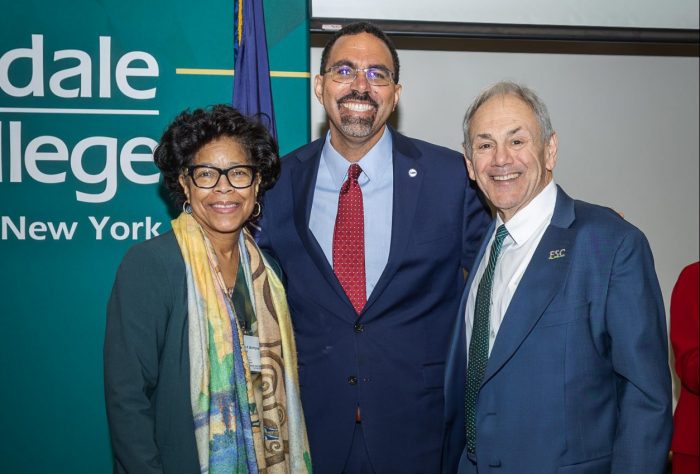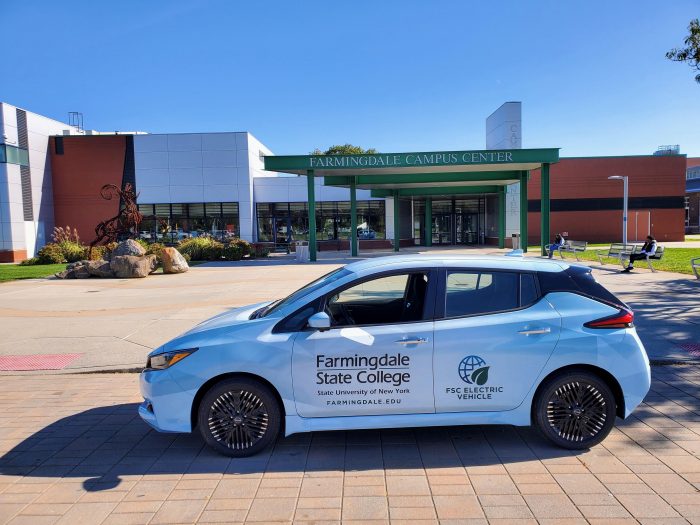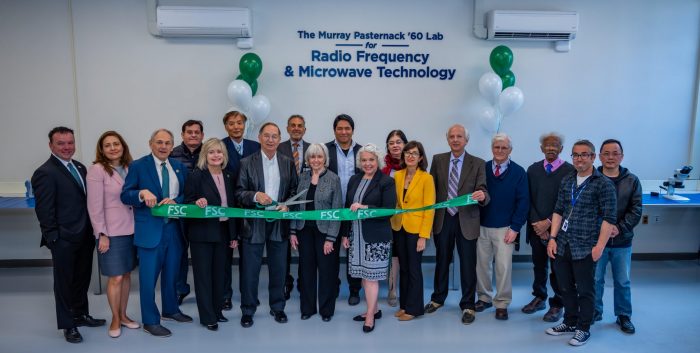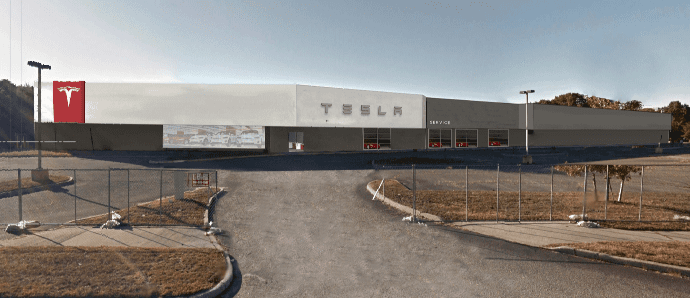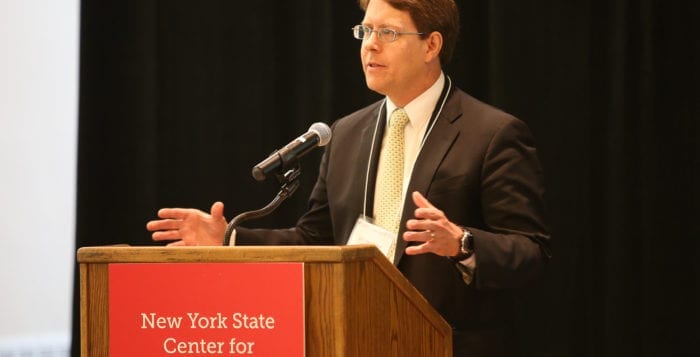Farmingdale State College (FSC) has been awarded more than $750,000 in funding for innovative, faculty-led proposals aimed at advancing offshore wind technology training and education on Long Island. FSC received three out of ten proposals funded from university centers, colleges of technology, and community colleges across the SUNY system.
A founding partner in the Offshore Wind Technology Institute (OWTI), FSC is a hub of wind technology and sustainable energy research, development, training and education, with certificate and microcredential programs in wind energy technology.
“Farmingdale is leading the way in the commitment to advance our use of offshore wind to power both our lives and our economy,” said John S. Nader, PhD, president of Farmingdale State College. “We are simultaneously creating jobs and an environmentally sustainable future for Long Island and throughout New York State.”
In total, the OWTI awarded more than $8M in two rounds of funding to support SUNY institutions in preparing students and workers for a sustainable energy future. FSC was awarded nearly $900,000 in the first round announced last May.
SUNY Chancellor John B. King, Jr. said, “To meet climate goals set by both President Biden and Governor Hochul, the offshore wind workforce needs to grow significantly over the next several years. That’s where SUNY and the Offshore Wind Training Institute come into play by developing programs to prepare the highly skilled, in-demand workforce that will power New York’s sustainable energy future. All of these projects represent the significant strides SUNY is taking toward advancing New York State’s climate goals.”
The recipients of the OWTI funding from FSC include:
- Khosro Shirvani and Marjaneh Issapour, awarded $282,700 to embark on groundbreaking research exploring additive manufacturing techniques for the repair of wind turbine components. Their project seeks to enhance the efficiency and sustainability of offshore wind infrastructure.
- Paulo Castillo and Supriyo Karmakar, awarded $371,914 to develop a cutting-edge workforce microcredential program. This initiative involves the acquisition of state-of-the-art equipment designed to detect blade defects, such as micro-cracks and erosion, ensuring the highest standards of safety and reliability in offshore wind energy systems.
In addition to the core projects, FSC received the following subawards:
- Marjaneh Issapour was awarded $100,000 to partner with the University at Buffalo to prepare instructional content for a wide audience to better understand the offshore wind supply chain.
- Lijian Xu, PhD is partnering with Stony Brook University and the Advanced Energy Center to create a power systems laboratory for renewable energy transmission experiences.
The initiatives align with the priority focus areas outlined by the OWTI, addressing the expanding needs of the offshore wind industry, and fostering equity, diversity, and inclusivity in clean energy education and training.
About Farmingdale State College
Farmingdale State College offers 46-degree programs focused on emerging, high-demand, and relevant careers to help prepare the next generation of leaders in technology, engineering, business, healthcare, science and the arts. With nearly 10,000 students, FSC is SUNY’s largest college of applied science and technology. More than half of our graduating seniors leave debt-free and 94% are employed six months after graduation or enrolled in graduate school. FSC is home to Broad Hollow Bioscience Park, which supports the development of biotech start-up companies and partners with surrounding businesses and research institutions along the Route 110 Business Corridor. Our engaging student experience, highly inclusive campus and sustained commitment to accessibility, affordability, and student support, helps make FSC one of the best values in higher education.

